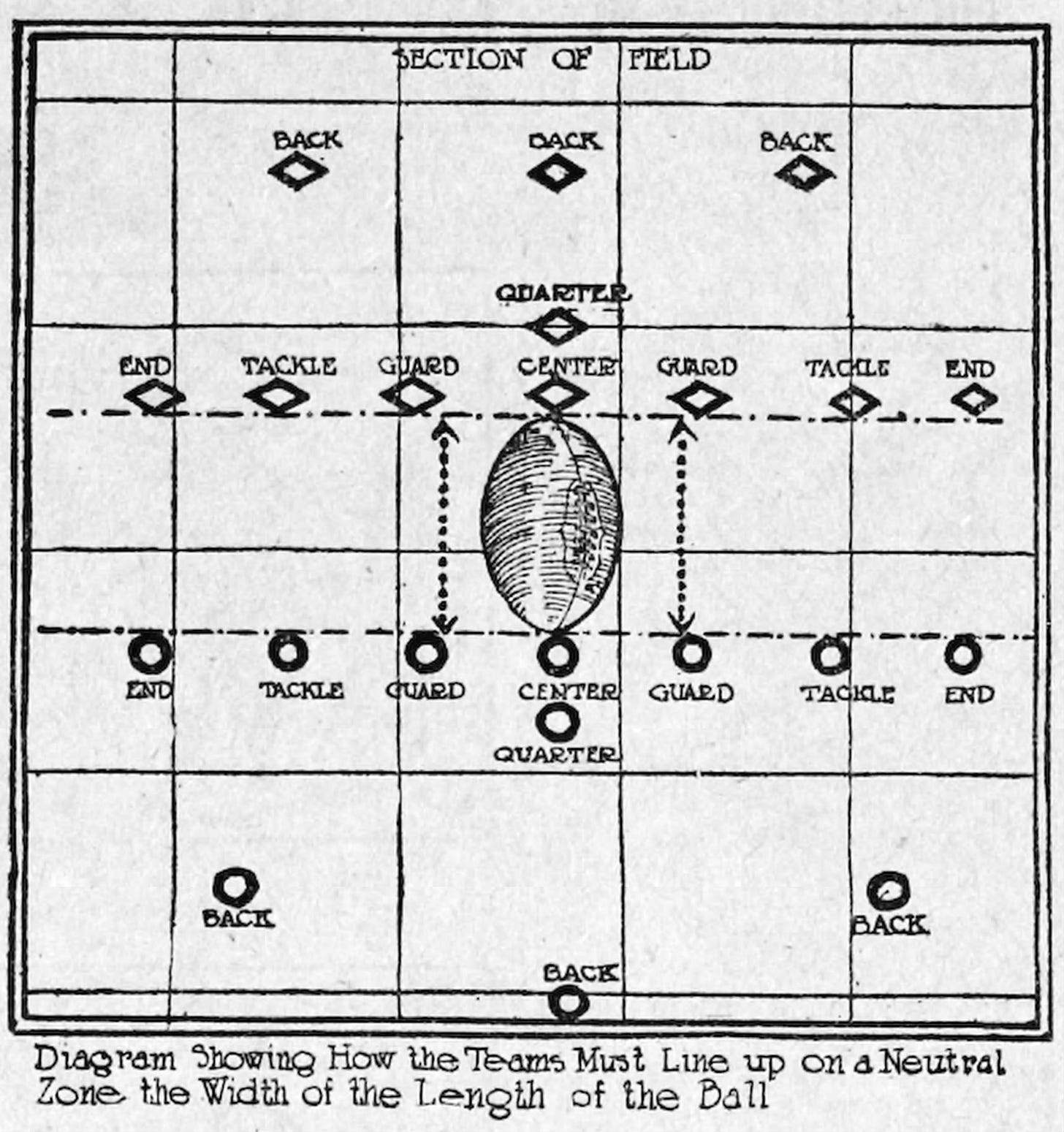Today's Tidbit... Downfield Punts and Dropkicks
Remnants of football's rugby past remained part of the game for varying amounts of time. For example, Saturday's Tidbit covered the return kick, which involved players immediately punting the ball back to the opponent after taking possession of the ball on a punt, kickoff, field goal attempt, or turnover. The return kick left the college game in 1967 but remains legal in Canadian football.
Another aspect of rugby that remained part of football for longer than most realize involved the ability to execute scrimmage kicks beyond the neutral zone. Scrimmage kicks are those executed during a play from scrimmage and include punts and field goal attempts. Nowadays, those kicks must occur behind the defensive line of scrimmage, but it was not always so. (The neutral zone came into being in 1906 and is the area between the offensive and defensive lines of scrimmage, which are found at the front and back of the ball.)
However, football transitioned from rugby, which lacks a line of scrimmage, so football also allowed players to kick the ball from anywhere on the field. Walter Camp himself once attempted to dropkicked field goal while running downfield, only to have the whistle blow while the ball was in the air. Camp later supported a rule change allowing play to continue if the clock ran out while the ball was in play.
Over the years, nearly everyone executed those kicks from behind the neutral zone since the kicking teams aligned and blocked in a manner that protected the kickers behind the line of scrimmage. Moreover, if a punter or drop kicker advanced beyond the neutral zone, they generally had a good shot at gaining a first down, so kicking from beyond the neutral zone was generally not favored.
Still, attempting a dropkick at the end of a half, like Camp, made sense from time to time, and punting when downfield to pin an opponent deep made sense in the old days for the same reasons teams return kicked and punted on early downs.
A reasonably recent example of a downfield punt was one executed by the Cowboys’ Danny White in 1981. His resulted from the Rams failing to pressure the punt, so he ran with the ball until they provided pressure.
White's kick confused the announcers in the booth and others because it was rare. In fact, they became so rare that they were considered a nuisance and potentially dangerous to punters. The NFL made the kicks illegal in 1991, and the NCAA did the same between 1989 and 1994, though I have not identified the specific year.
As with return kicks and other archaic nuances, scrimmage kicks downfield remain legal in Canadian football.
Football Archaeology is reader-supported. Click here to buy one of my books or otherwise support the site.


